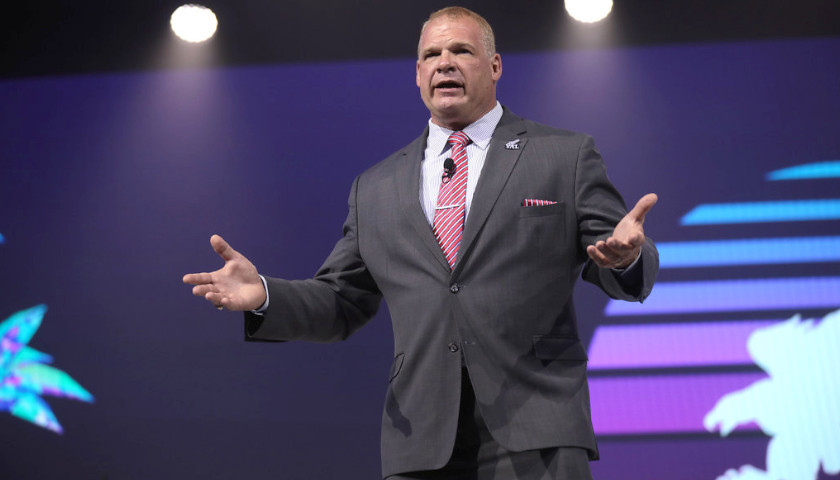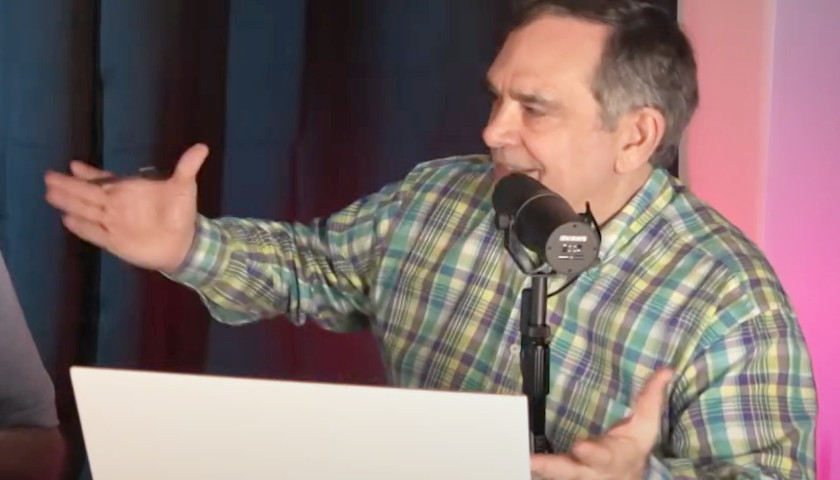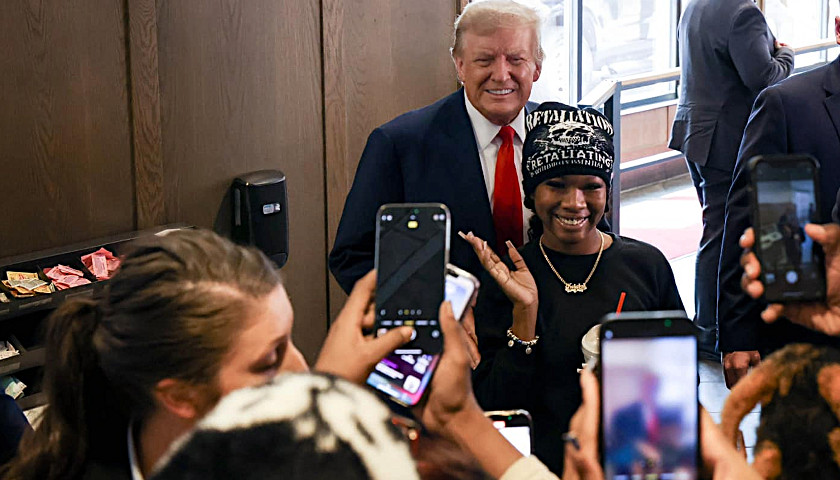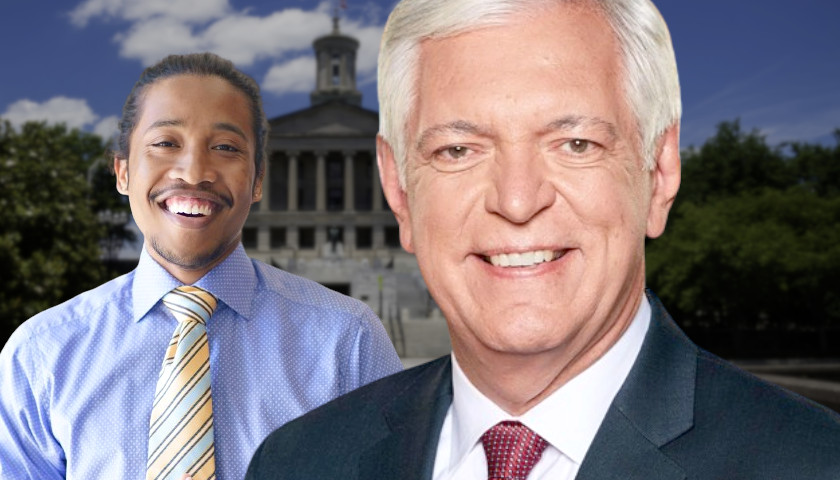Live from Music Row Tuesday morning on The Tennessee Star Report with Michael Patrick Leahy – broadcast on Nashville’s Talk Radio 98.3 and 1510 WLAC weekdays from 5:00 a.m. to 8:00 a.m. – host Leahy welcomed all-star panelist Clint Brewer to the studio to discuss the proposed rollout of the new COVID-19 vaccine which is expected to service frontline healthcare professionals and first responders as priority.
(Alex Azar clip plays)
This weekend shipment of vaccines is two point nine million doses. Enough to vaccinate two point nine million people. With two point nine million doses held back and sent in 21 days for people to receive their second dose. Each Friday from here on out we will announce new weekly allocations of the vaccine. It’s likely that another vaccine may be authorized in the coming days if it meets FDA’s rigorous standards.
Leahy: Well operation warp-speed. President Trump’s big effort has worked. The vaccine is being delivered here in Tennessee. According to Vivian Jones at our top story, Tennessee Receives First Shipment of COVID-19 Vaccine, But No Doses Administered. I’m ready to take the vaccine now personally. I’m ready.
Brewer: I think people are. I am too. I think it’s logistics. I’ve read about Pfizer, you know ramping up to make this much of anything as it’s a challenge. Whether it’s you know tanks or cars or vaccines. So, you know, I think there’s going to be a delay from it being approved rank-and-file regular folks being able to get it. I think it’s smart that it’s going to frontline healthcare workers and first responders.
Leahy: Yeah, that’s where it’s going first right?
Brewer: Right. I mean it makes sense. I’d love to see teachers included in there. I mean one of the reasons we keep closing down schools is because teachers keep getting sick.
Leahy: Yeah. I wouldn’t put them at the top of the list. But again, somebody else is making that list.
Brewer: Well, I guess I would put them near the top lists just because I think it’s better for kids to be in school. And you need teachers to have kids in school.
Leahy: Here’s the rest of the story. Elsewhere in the country health care workers and first responders began receiving the first doses of the Pfizer vaccine on Monday. It was approved for emergency use by the FDA on Friday. Tennessee expects 56,000 doses of the Pfizer vaccine to arrive in the state on Wednesday and to be distributed to 74 hospitals on Thursday. That vaccine requires two doses administered weeks apart. The second shipment of 56 thousand doses will arrive in Tennessee in three weeks according to the Department of Health. So there’s a plan here.
Brewer: There is. There is a plan and you know, I think it’ll they’ll refine the process as it goes. I read that the Pfizer vaccine requires a lot of very low refrigeration temperature. Like very very low.
Leahy: Yeah like 95 degrees below zero. So then that adds an element of logistical complexity to it.
Brewer: That’s right. And you know, you can’t just ship it and hold it.
Leahy: But it’s out there. and there’s another one. The Moderna vaccine doesn’t come out at such a low temperature. So that’s suggestive be a little bit easier to to get the logistics of that done. But I’m guessing now if the first vaccines are going out here this week and Tennessee frontline healthcare workers. Which is I think the right choice. I think I read that the next step would be maybe nursing home residents.
Brewer: I have also heard first responders.
Leahy: So first responders, yeah that these things all make sense.
Brewer: Totally they do and I think the challenge will be beyond those groups who’s next?
Leahy: I want to be next. (Laughs) A lot of people feel that way.
Brewer: Well yeah. I think they do. And it will be interesting to see how states prioritize.
Leahy: Do the states get to pick the prioritization?
Brewer: I think the states have a lot of say in it yes. I don’t think there’s a federal, you know mandate about who gets what first.
Leahy: And I don’t think this is necessarily all that. I mean, you know, it’s just a question of selecting who goes next right? I’m not sure how politically controversial it would be.
Brewer: But well, I think there’s also a question of you know, do we have enough just to make it readily available to anyone who wants it? I mean, that’s a great way to settle who gets it next. After you get past first responders, nursing homes, and health care workers. Is it going to be in every county health department? Is it going to be at the doctor’s offices? Is it going to be readily available to the general public?
Leahy: I think that rollout will start in late January continue on maybe till the end of May I guess what I’m reading?
Brewer: Yeah, I think so.
Leahy: And here’s the big question for you from a public policy perspective. Do all these stupid OVID shutdowns and lockdowns, do they start to end, or do the Democratic mayors and governors who seem to love them do they continue them beyond their usefulness?
Brewer: Well, you know, I think the question is do you get to a critical mass first of having the vaccine where you have enough to truly inoculate anyone in your state who wants it? And then after you answer the question of volume, do you have the apparatus to get it out there? I mean do you have an adequate system for getting it out?
I think that’s got a rely as much on the private sector as the public sector. And then you know for distribution, I mean people aren’t used to always going to a government facility or a lot of car line to get inoculation. They used to go into a walk-in clinic to get a flu shot. Now much can we standardize and normalize the distribution of the vaccine so people get it in their normal patterns, right?
I know when I get the flu shot each year it’s usually on the go. I don’t make an appointment at the doctor to get a flu shot. It’s so prevalent. You can get it while you’re standing in line waiting on a prescription and Target. You can get it and you can walk into half a dozen places just get one. So how much can we normalize the distribution of the vaccine? And then to your question, you know, I think if enough people are getting it there really shouldn’t be outbreaks.
Leahy: In theory.
Brewer: In theory. And it’s America and we’re all human. And I’m sure somebody will be heavy-handed somewhere where it’s inevitable right?
Leahy: Well, when do you when would be your guess that at least from a public health perspective we get back to normal? What’s your best guess?
Brewer: Oh gosh. This time next year. I think that you know inoculating and giving a vaccine to a nation as large as ours is going to take some time. And what is normal? I think once you have it, the more people who have it the more people can get back on airplanes and start going to meetings and have their team sports resume for their kids. Go to go to church.
Leahy: Yes! Go to church.
Brewer: At that point when it’s readily available, I think the time when things become ‘normal’ again is when it flips back to the person. When it’s so available and that if you don’t have it and you get COVID that’s kind of on you.
Leahy: It’s on you.
Brewer: I think that’s when we get back normal.
Leahy: It’s interesting because I have basically, you know, we’ve done this show every day this year in the studio. Every day it’s been done. We had a period of time where we didn’t have guests come in for in-studio, which is my favorite way to do it because it’s more fun. You could you know, you get to get the interaction with your guests when you do it in the studio.
But it’s interesting because I have you know, I’ve followed, you know, common sense procedures, but I haven’t been you know overly crazy about it. I do think now as we’re on the precipice of a vaccine I find myself thinking I’m just not going to take any risks between now and the time I get a vaccine.
Brewer: No, I think a lot of people are that way. I think that’s why so many Americans are you know, spending Christmas alone or with their immediate families and not getting outside in large groups. I think we’ve been cautious this long that it would seem foolhardy to go, oh, there’s a vaccine! Let’s start acting normal before we get it. I mean, wouldn’t that be awful to get the disease, you know, like two weeks before you get the vaccine?
Leahy: Two weeks before you get the vaccine. I harken back to my days as a long-distance runner. If you’re running a marathon and you get to that at 26 Mile Mark and it’s you know, 26 miles and a few hundred yards. You don’t want want to fall down at the 26-mile mark. Or the 25.5-mile mark. And we’re getting pretty close to the 26-mile mark of this COVID-19 marathon. And you know, I just don’t want to fall down.
Brewer: I completely agree. and you know, you made an interesting comment a good comment, and an accurate comment about Operation Warp Speed being a success. It is a success. And I think that you know, people are going to have to look back as history judges this. And that’s going to be one of the things the Trump administration did that very much did work. It was investing and getting the vaccine fast-tracked.
Listen to the full third hour here:
– – –
Tune in weekdays from 5:00 – 8:00 a.m. to the Tennessee Star Report with Michael Patrick Leahy on Talk Radio 98.3 FM WLAC 1510. Listen online at iHeart Radio.








